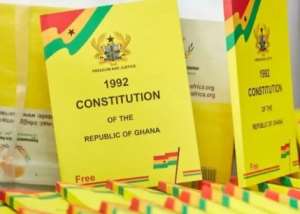
In a season of national reckoning, when the gavel of justice trembles and the Constitution is tested, satire has found its stage. But when the Chief Justice of the Republic cries foul—not in jest, but in earnest—should our instinct be to laugh or to listen?
Recent commentary has mocked Chief Justice Gertrude Torkornoo’s public defense as melodrama. But beneath the sarcasm lies a constitutional crisis that demands more than applause lines. It demands attention.
I. The Legal Earthquake: A Timeline of Firsts
March 2025: Three petitions land on the President’s desk, calling for the removal of the Chief Justice. April 22, 2025: The President, after consulting the Council of State, suspends her and initiates an Article 146 inquiry. Justice Torkornoo requests 7 days to respond. The Presidency grants 10. She accepts—but later claims the documents were incomplete. A five-member committee is formed. She raises concerns about its neutrality and the legal framework being used. CI 47 is applied instead of CI 65. She calls it a mischaracterization of the process. Hearings are held at Adu Lodge, a site with painful judicial history. She calls it “psychological intimidation.” Leaks flood the press, despite the process being in-camera. She breaks her silence in a public address on June 25, 2025.
“I chose to respect the President’s warrant of suspension, even though it had no basis… but I will not stay silent about the perversion of law, rules, and due process.”
II. The Constitutional Questions
Can a person defend themselves without access to the full case against them? Should petitioners be allowed to issue subpoenas without testifying? Does the venue of a hearing matter when it carries the ghosts of judicial martyrdom? Is the use of High Court rules in a constitutional inquiry legally sound?
These are not academic questions. They are civic ones. And they go to the heart of whether justice in Ghana is a principle—or a performance.
III. The Precedents We Cannot Ignore
This is not the first time a high-ranking official has faced removal under Article 146. But it is the first time a sitting Chief Justice has.
Charlotte Osei, former EC Chair, was removed in 2018 after a petition citing procurement breaches. She demanded access to the petition and clarity on the committee—just like Torkornoo. Jean Mensa, the current EC Chair, now faces similar calls for removal. A petition filed in January 2025 alleges incompetence and constitutional violations. The public, weary of “FC 7″ and “FC 9” judgments, is losing faith in the judiciary’s impartiality. The cry is no longer whispered: “Let the Chief Justice go—and take the EC with her.”
“When the people lose confidence in the courts, the rule of law becomes a myth dressed in robes.”
IV. The Epilogue: A Nation at the Crossroads
Ghanaians are not just tired—they are disillusioned. They have watched rulings that feel disconnected from justice. They have seen electoral commissions that disenfranchise entire constituencies. They have heard the silence of institutions when they should have roared.
“Justice must not only be done—it must be seen to be done. And when it is neither, the people will speak.”
Today, the people are speaking. Not just about one woman. Not just about one institution. But about a system that must either renew itself—or risk irrelevance.
Let us not confuse satire with scrutiny. Let us not trade constitutional clarity for comic relief. And let us remember: “The price of freedom is eternal vigilance.”
Because when the laughter fades, only one thing will matter: Did we defend the Constitution—or did we laugh it away?
Retired Senior Citizen
Teshie-Nungua
[email protected]


